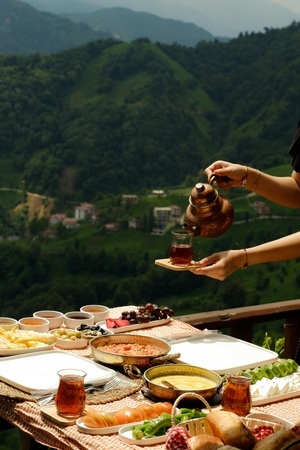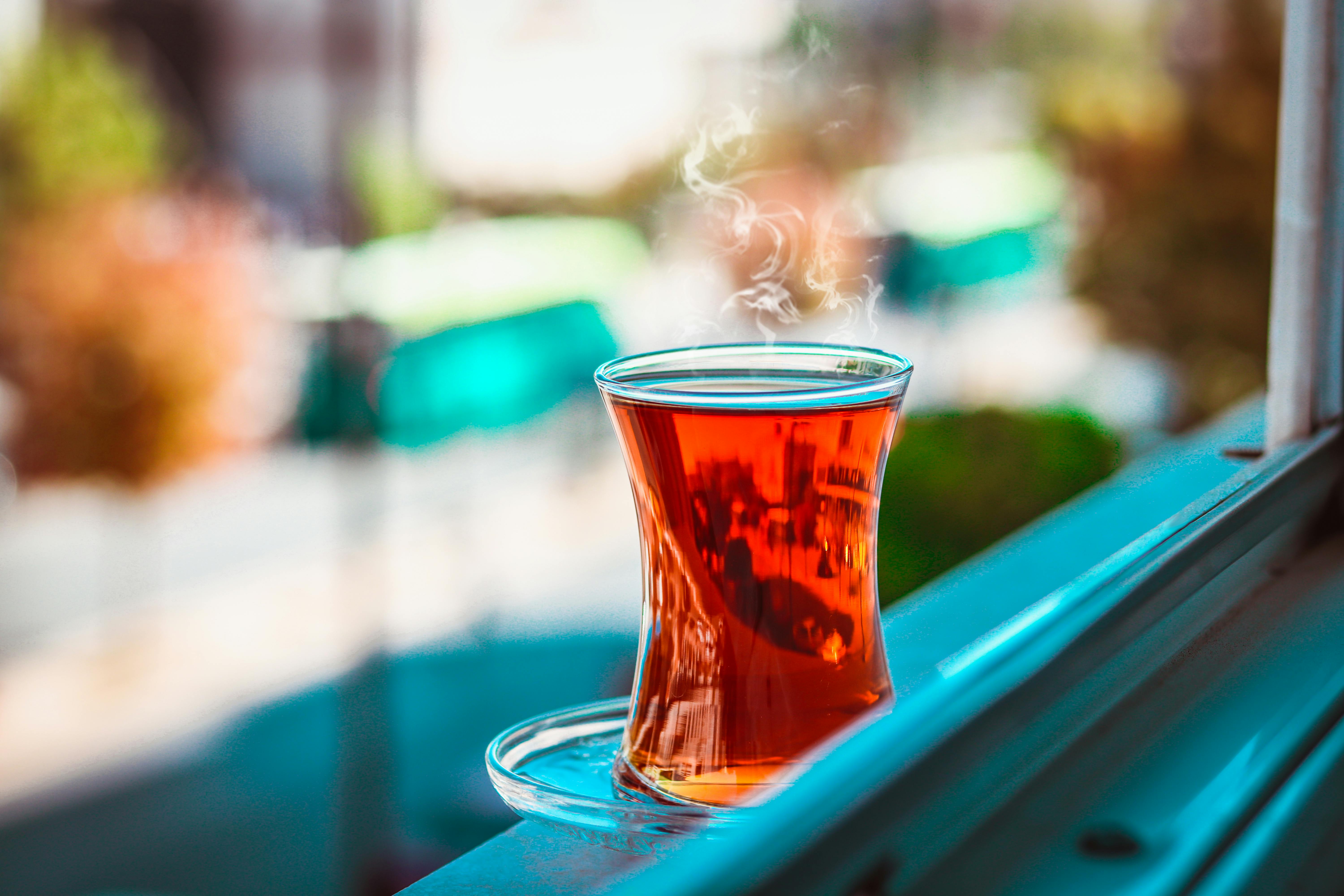Turkish Tea: A Timeless Tradition in Every Sip
Introduction
When you think of Turkey, images of grand bazaars, rich spices, and the sound of clinking tulip-shaped glasses might come to mind. Among the many cultural treasures Turkey has to offer, one stands out for its simplicity and daily significance: Turkish tea, or çay (pronounced “chai”).
This beloved drink is far more than a beverage — it's a symbol of hospitality, community, and tradition woven into the fabric of everyday life.
The History of Turkish Tea
Although tea was introduced to Turkey relatively recently — in the early 20th century — it quickly became a national favorite. During the Ottoman Empire, coffee was the dominant drink. However, after World War I, due to rising coffee prices and accessibility issues, tea emerged as a more affordable and local alternative.
The Black Sea region, particularly Rize, proved to be an ideal location for tea cultivation, and Turkey’s tea industry flourished. Today, Turkey ranks among the top tea-consuming countries in the world.

How Turkish Tea Is Made
Unlike Western-style tea, Turkish tea is brewed using a two-tiered teapot, known as a çaydanlık:
-
The top pot holds strong, concentrated tea.
-
The bottom pot contains boiling water.
Here's the basic brewing method:
-
Add loose black tea leaves (commonly from Rize) to the top pot.
-
Fill the bottom pot with water and bring it to a boil.
-
Pour some of the boiling water over the tea leaves in the top pot.
-
Let the tea steep over low heat for 15–20 minutes.
To serve, you mix the concentrated tea with hot water according to preference — light (açık) or strong (koyu) — into small, tulip-shaped glasses.
A Ritual of Hospitality
Offering tea is a fundamental part of Turkish hospitality. Whether you’re visiting a friend's home, discussing a business deal, or shopping in the bazaar, you're almost guaranteed to be offered a steaming glass of tea — and saying no can sometimes feel impolite!
Tea isn't just a drink — it’s a gesture of welcome and warmth.
Turkish Tea Culture Today
-
Morning starter: Many Turks start their day with a glass or two.
-
Social glue: Tea is often enjoyed with neighbors, coworkers, or friends.
-
Tea houses: Known as çay bahçesi, these are social hubs where people gather to drink tea, play backgammon, and chat for hours.
-
Served sweet: Traditionally served without milk, but often with sugar cubes or small treats like lokum (Turkish delight).
Health Benefits
While Turkish tea is typically black tea and contains caffeine, it also has antioxidant properties that may aid digestion, boost energy, and improve heart health — when consumed in moderation.
Fun Fact
The average Turkish person drinks 3–5 cups of tea per day, and the country produces over 200,000 tons of tea annually!
Where to Buy Authentic Turkish Tea
Looking to try it yourself? Look for high-quality brands like Çaykur, Rize Turist, or explore artisan blends with spices and herbs. Pair it with a traditional Turkish tea glass set and you’ll experience a taste of Anatolia right at home.
Conclusion
Turkish tea is more than a drink — it's a ritual of connection, warmth, and culture. Whether you're sipping it on a rainy afternoon or enjoying it after a meal with friends, you're taking part in a tradition that has united generations.
So go ahead — brew a glass, sit back, and let the aroma of Turkish tea transport you to the heart of Istanbul.
